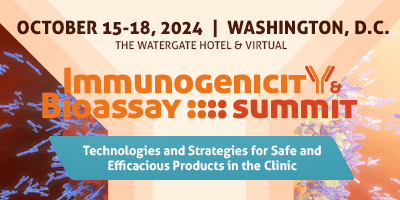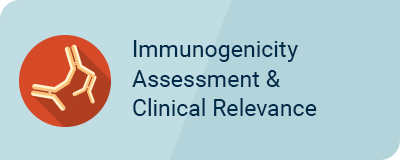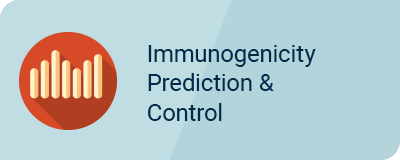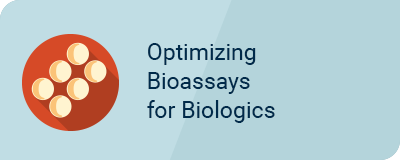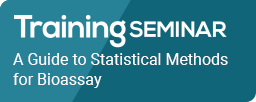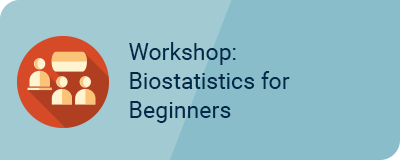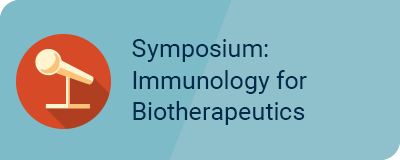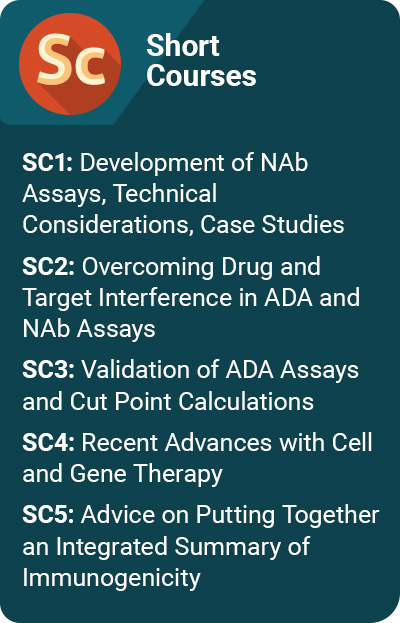2024년도 컨퍼런스 프로그램
Cambridge Healthtech Institute’s 16th Annual
Immunogenicity Assessment & Clinical Relevance
( 면역원성 평가와 임상면에서의 관련성 )
Assay Strategy for Meaningful Evaluation
2024년 10월 16-17일 - IN-PERSON & ONLINE
This year's Immunogenicity Summit brings the FDA together with leading industry and academic experts to discuss the development, application and validation of immunogenicity assays. Learn how to manage drug and target interference and tolerance,
understand the impact of pre-existing antibodies and interpret the clinical significance of assay data. Novel modalities including cell and gene therapies are posing new challenges to the industry, all of which will be discussed in-depth at this meeting.
Cambridge Healthtech Institute ’s 16th Annual
Immunogenicity Prediction & Control
( 면역원성 예측과 제어 )
Regulatory Perspectives, Risk Factors, and Management
2024년 10월 17-18일 - IN-PERSON & ONLINE
The impact of immunogenicity on safety and efficacy, and consequent cost to the industry, is well understood. Accordingly, investigators are focusing on factors that contribute to immunogenicity, as well as a number of different approaches to predict immunogenicity at the drug discovery stage. There are several major problematic areas with novel modalities. Efforts are being made to suppress immune responses to these products and to introduce tolerizing and deimmunization approaches. Attend in 2021 to hear insightful feedback from the FDA and learn from top industry and academics in this field.
Cambridge Healthtech Institute’s 12th Annual
Optimizing Bioassays for Biologics
( 생물제제용 바이오어세이의 최적화 )
Case Studies Demonstrating Successful Bioassay Development
2024년 10월 17-18일 - IN-PERSON & ONLINE
New therapeutic modalities, including cell & gene therapies, immunotherapies, and antibody therapies, continue to push the limit on bioassay development and implementation. New formats present challenges including determining what reference materials to use and how to validate the assay. Health authorities and USP have provided guidance for the design and validation of a bioassay; however, they are just starting to consider solutions to common problems springing from this revolution in technology. Cambridge Healthtech Insitute's 9th Annual Optimizing Bioassays for Biologics will bring together leaders working in bioanalytical and bioassay development to present case studies and best practices for handling the most common issues in biological assay development, validation, transfer, and maintenance. be presented along with recommendations for implementation to ensure a steady drug development pipeline.
Training Seminar: A Guide to Statistical Methods for Bioassay
( 트레이닝 세미나 : 바이오어세이용 통계학적 방법의 개요 )
2024년 10월 16-17일 - IN-PERSON ONLY
Instructor: David Lansky, PhD, President, Precision Bioassay, Inc.
This course will introduce the statistical concepts needed for bioassays (all illustrated with useful and relevant examples), review properties of bioassays, and show how the statistical methods apply to bioassay. To work with the practical constraints in the laboratory the statistical methods must adapt. Using design of experiments (DOE) for bioassay development, validation, and monitoring is powerful and effective when informed by these constraints and adaptations. Examples (mostly from cell-based bioassays; some using robotics) will illustrate strategic ways to design bioassays to make it (relatively) easy to apply DOE in early bioassay development when measuring the capability of a bioassay, when improving an existing bioassay, and when doing validation. We will cover ways that these strategic assay design considerations, when combined with good assay analysis methods, also support good assay monitoring with graphical and quantitative tools as part of a lifecycle approach.
Cambridge Healthtech Institute’s 14th Annual
Symposium: Immunology for Biotherapeutics
( 심포지엄 : 바이오 치료제용 면역학 )
Understanding and Manipulating the Immune System for Therapeutic Advantage
2024년 10월 15일 - IN-PERSON & ONLINE
Many of the exciting developments in drug discovery and development today concern the immune response and its manipulation and control. Our understanding of immune involvement in therapeutic disorders and their treatment is developing rapidly. T
and B lymphocyte subsets, innate lymphoid cells (ILCs), macrophages, dendritic cells and cytokines are all involved in a complex manner. There is the potential for manipulation for therapeutic advantage, yet the danger disastrous consequences if not
well understood. At this virtual symposium, attendees will find out how to utilize the immune system and overcome inhibitory factors without overlooking potential safety issues.
Workshop: Biostatistics for Beginners
( 워크샵 : 초심자용 생물통계학 )
2024년 10월 15일 - IN-PERSON ONLY
Instructor: Nancy Sajjadi, Independent Quality Consultant, Sajjadi Consulting
Biostatistics is the science of learning from biological data. Inferential statistics use data from a sample to make generalizations or predictions about a population. The process of sampling naturally incurs error and statistics are needed to measure, control, and communicate the uncertainty of reported results. This workshop is intended for people who generate or review bioassay data, but have minimal training in statistics. This slower-paced course will help participants understand the meaning of commonly encountered statistical information and expand their knowledge of fundamental concepts and tools that are applicable to their daily work.
CONFERENCE PROGRAMS
